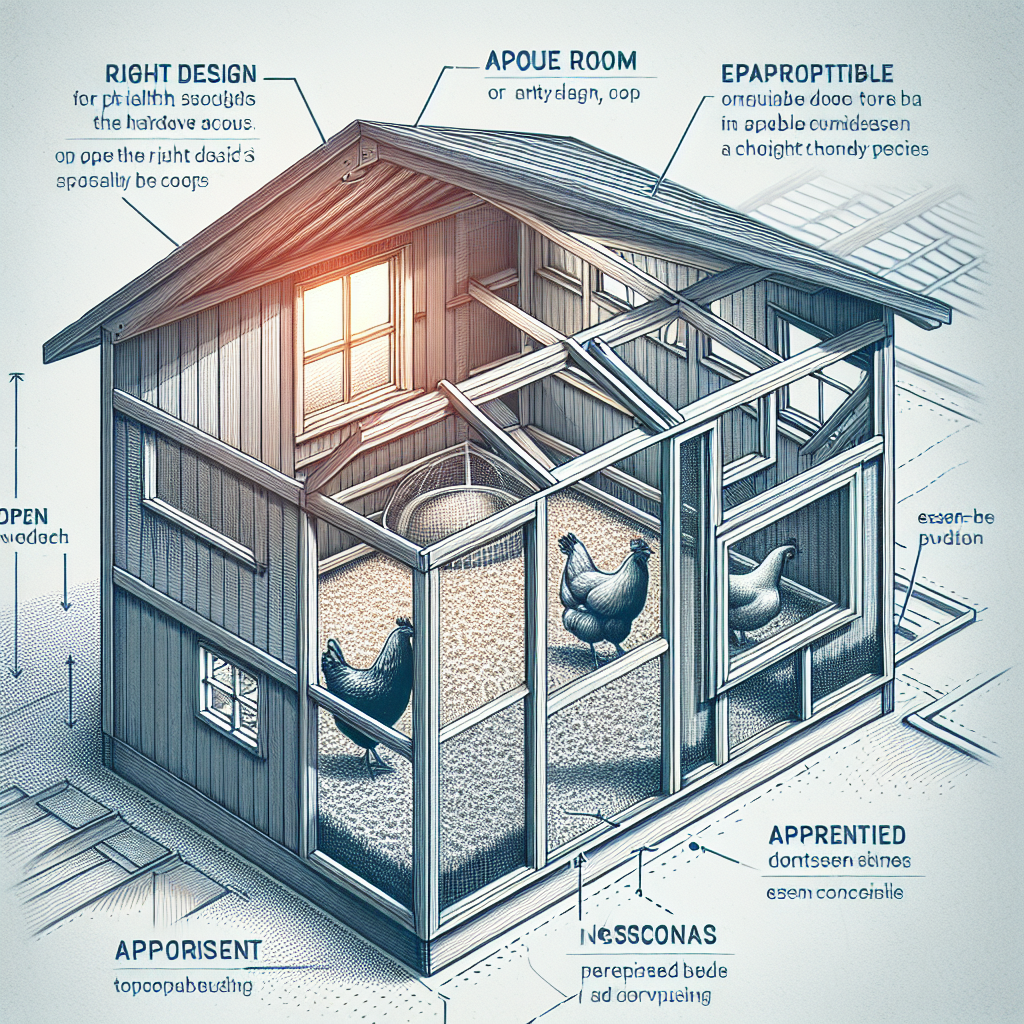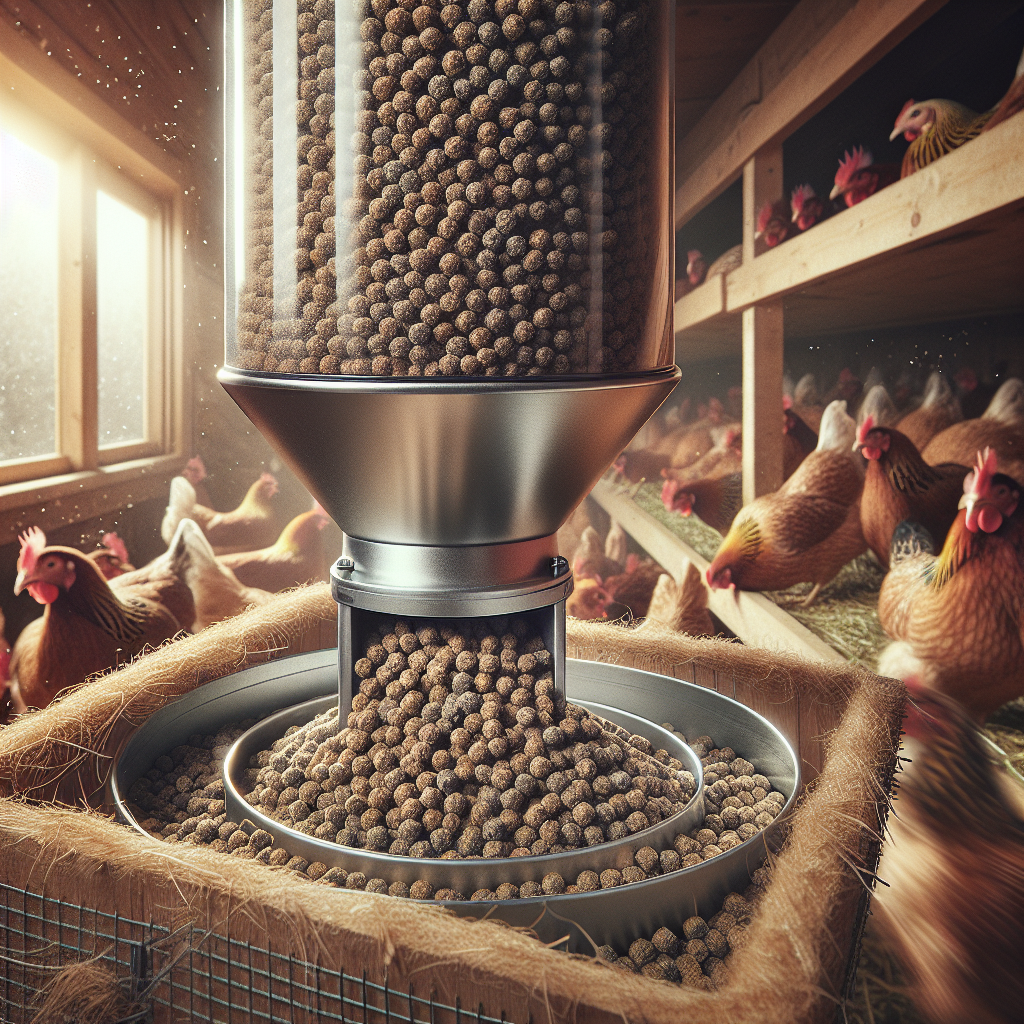Imagine creating a cozy and comfortable haven for your feathered friends, where their health and happiness flourish. That’s exactly what the design of your chicken coop can achieve. From optimizing ventilation to providing ample space for their natural behaviors, every aspect of coop design plays a crucial role in the well-being of your precious chickens. In this article, we will explore the various ways in which your coop design choices can impact the health and happiness of your feathered companions, ultimately allowing them to thrive in a safe and nurturing environment.
Factors to Consider in Coop Design
When it comes to designing a coop for your chickens, there are several important factors to consider. By paying attention to these factors, you can ensure that your chickens have a comfortable and healthy living environment. Here are some key considerations for coop design:
Size of the Coop
One of the first things to consider is the size of the coop. It’s essential to provide adequate space for your chickens to roam and exercise. A cramped space can lead to stress and can potentially increase the risk of diseases spreading. The general rule of thumb is to allow at least 4 square feet of space per chicken inside the coop, and 10 square feet per chicken in the outdoor run area.
Ventilation
Proper ventilation is crucial in a chicken coop to maintain a healthy environment. Good air circulation helps prevent excessive moisture buildup, reduces the risk of respiratory issues, and minimizes the buildup of ammonia from chicken manure. It’s recommended to have windows or vents in the coop to allow fresh air to flow through while maintaining appropriate temperature levels.
Lighting
Lighting plays a significant role in both the physical and psychological well-being of your chickens. Natural light is always the best option, as it helps promote natural behaviors and regulates their internal clocks. If natural light is limited, consider adding some artificial lighting to ensure adequate lighting intensity. It’s important to regulate the duration of light exposure, as excessive lighting or sudden changes in lighting patterns can impact the chickens’ egg production.
Insulation
Insulation is essential in coop design to maintain proper temperature levels and protect chickens from extreme weather conditions. A well-insulated coop helps regulate heat in the winter and provides cooling in the summer. Insulation also contributes to energy efficiency, as it reduces the need for additional heating or cooling devices. Additionally, insulation helps prevent frostbite, which can be a common issue during cold winter months.
Nesting Boxes
Providing suitable nesting boxes is important for the overall health and well-being of your chickens. A sufficient number of nesting boxes should be available to prevent competition and stress among the hens. The size of the nesting boxes should accommodate the breeds of your chickens, ensuring they have enough space to comfortably lay their eggs. Choosing nesting box materials that are easy to clean and sanitize is also crucial to maintain hygiene and prevent the spread of diseases.
Perches
Perches are not only handy for chickens to roost on, but they also serve several important purposes. Providing perches allows chickens to exercise their natural behavior of roosting and resting off the ground. It’s important to choose the right perch size to avoid foot problems. The diameter of the perch should be appropriate for the size of your chickens’ feet, ensuring they can grip it comfortably. Proper placement and accessibility of perches are also important, making sure they are easily reachable and not obstructing the chickens’ movement within the coop.
Flooring
Choosing the right flooring material is crucial for both comfort and hygiene. The flooring should be easy to clean and provide good drainage to prevent moisture build-up. While some people prefer using materials like straw, wood shavings, or sand as bedding, others opt for concrete, linoleum, or wire mesh floors. It’s important to consider the pros and cons of each material and select the one that suits your specific circumstances. Additionally, providing comfortable flooring can help prevent issues like bumblefoot, a condition caused by bacterial infections in the feet.
Security
Ensuring the security of your chicken coop is vital to protect your flock from predators. The coop should be constructed with sturdy materials and have secure locks on doors and windows. Also, consider reinforcing the coop with wire mesh or hardware cloth to prevent any unwanted visitors from entering. Regularly check for any potential weak points or gaps in the coop’s structure that may compromise its security.
Accessibility
Another factor to consider in coop design is accessibility. Your coop should be easily accessible for you to collect eggs, refill food and water containers, and clean the coop. Having easy access to the coop makes daily chores more convenient and helps maintain the cleanliness and hygiene of the coop. Consider the placement of doors, hatches, and containers to ensure they are within reach and easy to open or clean.
Cleaning and Maintenance
Regular cleaning and maintenance are essential for the health and well-being of your chickens. Establishing a cleaning schedule and following it diligently helps prevent the buildup of waste and pathogens. The coop should be cleaned thoroughly, removing any soiled bedding, droppings, and feathers. Proper waste management is also crucial, including the appropriate disposal or composting of chicken manure. Maintaining good hygiene within the coop minimizes the risk of diseases spreading and helps keep your chickens healthy.
Importance of Coop Design for Chicken Health
Now that we’ve covered the important factors to consider in coop design, let’s delve into why coop design is crucial for the health and well-being of your chickens. By prioritizing coop design, you can provide numerous benefits to your flock:
Reducing Stress
A well-designed coop offers chickens a comfortable and stress-free environment. A spacious coop, ample ventilation, and appropriate lighting help reduce stress levels, allowing your chickens to live a happier and healthier life. Reduced stress contributes to improved immune function, reproductive health, and overall well-being.
Preventing Diseases
Proper coop design significantly reduces the risk of diseases spreading among your flock. Good ventilation and proper sanitation prevent the buildup of harmful bacteria and fungi that can lead to respiratory issues or infections. Having easy-to-clean nesting boxes, perches, and flooring materials also contribute to maintaining good hygiene and preventing the spread of diseases.
Providing Comfort
Coop design plays a crucial role in providing comfort to your chickens. A well-insulated coop protects them from extreme weather conditions, ensuring they stay warm during cold winters and cool during hot summers. With appropriate perches and nesting boxes, your chickens can rest and roost comfortably, which aids in their overall well-being and satisfaction.
Promoting Natural Behaviors
Designing a coop that allows chickens to express their natural behaviors is essential for their mental and physical health. A coop with perches allows chickens to roost and rest off the ground, as they would in their natural habitat. Properly designed nesting boxes provide the privacy and security hens need to lay their eggs comfortably. These features contribute to the emotional growth and contentment of your flock.
Encouraging Exercise
A coop that provides ample space and appropriate perches promotes exercise among your chickens. Chickens naturally love to explore, scratch the ground, and flap their wings. By providing adequate space and suitable perches, you encourage your flock to engage in these activities, which are essential for their physical health and muscle development.
Enhancing Social Interaction
Chickens are social animals and benefit from opportunities for social interaction within the coop. A well-designed coop allows chickens to establish and maintain social hierarchies, fostering stronger bonds among the flock. By providing adequate space, perches, and nesting boxes, you create an environment that encourages positive social behaviors and reduces the risk of aggression or bullying within the flock.
In conclusion, coop design is a critical aspect of raising healthy and happy chickens. By considering factors such as the size of the coop, ventilation, lighting, insulation, nesting boxes, perches, flooring, security, accessibility, and cleaning and maintenance, you can provide an environment that promotes their well-being. A well-designed coop reduces stress, prevents diseases, provides comfort, promotes natural behaviors, encourages exercise, and enhances social interaction among your chickens. By prioritizing coop design, you create a safe and healthy home for your beloved flock.




